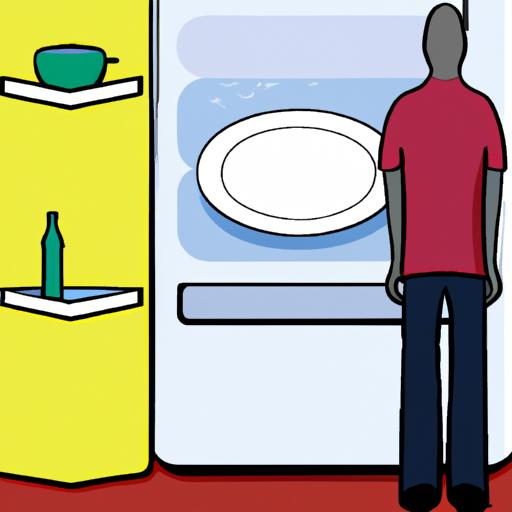What is Diet Fatigue? Understanding the Concept
If you’re someone who’s been trying to lose weight, chances are you’ve experienced diet fatigue at some point. Diet fatigue is a term used to describe the feeling of exhaustion, frustration, and disappointment that people experience when they’ve been on a diet for a while, but they’re not seeing the results they want.
Diet fatigue can manifest in many ways, including binge eating, emotional eating, and a general sense of hopelessness. It’s a common phenomenon that affects millions of people worldwide, but it’s not always easy to understand or overcome.
Causes of Diet Fatigue

Diet fatigue can be caused by a variety of factors, but some of the most common include restrictive diets, unbalanced diets, and unrealistic expectations.
Restrictive Diets
Restrictive diets are diets that restrict certain foods or food groups in an effort to lose weight. These diets can be effective in the short term, but they’re often unsustainable in the long term. When you’re on a restrictive diet, you may feel deprived, hungry, and irritable, which can lead to feelings of diet fatigue.
Unbalanced Diets
Unbalanced diets are diets that don’t provide your body with the nutrients it needs to function properly. When you’re on an unbalanced diet, you may feel tired, weak, and lethargic, which can lead to feelings of diet fatigue.
Unrealistic Expectations
Unrealistic expectations are another common cause of diet fatigue. When you set unrealistic goals for yourself, you’re setting yourself up for failure. If you expect to lose a lot of weight quickly, you may feel disappointed and frustrated when you don’t see the results you want. This can lead to feelings of diet fatigue and can make it difficult to stay motivated.
Signs and Symptoms of Diet Fatigue
Diet fatigue can manifest in many ways, and the signs and symptoms can vary from person to person. Some common signs and symptoms of diet fatigue include:
- Feeling tired or lethargic
- Feeling irritable or moody
- Craving unhealthy foods
- Binge eating or emotional eating
- Feeling hopeless or defeated
- Stalled weight loss or weight gain
If you’re experiencing any of these symptoms, it’s essential to take a step back and evaluate your diet and weight loss goals. It’s possible that you’re pushing yourself too hard, and you need to make some adjustments to your approach.
Negative Effects of Diet Fatigue
Diet fatigue can have a range of negative effects on your physical and mental health. Some of the most common negative effects of diet fatigue include:
Weight Gain
One of the most significant negative effects of diet fatigue is weight gain. When you’re feeling tired, frustrated, and hopeless, it can be easy to give up on your weight loss goals and turn to unhealthy foods for comfort. This can lead to weight gain and can make it even harder to achieve your weight loss goals.
Health Issues
Diet fatigue can also lead to a range of health issues. When you’re not getting the nutrients your body needs, you may experience fatigue, weakness, and other symptoms. Over time, this can lead to more severe health issues, such as nutrient deficiencies, heart disease, and diabetes.
Mental Health Concerns
Diet fatigue can also take a toll on your mental health. When you’re feeling frustrated and hopeless, it can be challenging to stay motivated and positive. This can lead to feelings of anxiety, depression, and other mental health concerns.
Strategies to Overcome Diet Fatigue
If you’re experiencing diet fatigue, there are several strategies you can use to overcome it. Here are some tips to help you stay motivated and on track with your weight loss goals:
Practice Mindful Eating
Mindful eating is a practice that involves paying attention to your food and your body’s signals. When you practice mindful eating, you’re more likely to eat when you’re hungry, stop when you’re full, and make healthier food choices.
Incorporate Variety in Your Diet
Eating the same foods over and over again can quickly become boring and lead to diet fatigue. Incorporating variety in your diet can help keep things interesting and make it easier to stick to your weight loss goals.
Set Realistic Goals
Setting realistic weight loss goals is essential when you’re trying to overcome diet fatigue. If you set unrealistic goals for yourself, you’re setting yourself up for failure. Instead, set small, achievable goals that you can work towards over time.
By implementing these strategies, you can overcome diet fatigue and stay motivated on your weight loss journey. Remember, weight loss is a journey, and it’s essential to be patient and kind to yourself along the way.
Strategies to Overcome Diet Fatigue
Diet fatigue can be challenging to overcome, but it’s not impossible. Here are some strategies you can use to overcome diet fatigue and stay motivated on your weight loss journey:
Practice Mindful Eating
Mindful eating is a technique that involves paying attention to your food and how your body feels while you’re eating. When you eat mindfully, you’re more likely to make healthy choices, and you’re less likely to overeat or binge eat. To practice mindful eating, try to eat slowly, savor your food, and pay attention to your hunger and fullness cues.
Incorporate Variety in Your Diet
Eating the same foods over and over again can get boring, which can contribute to feelings of diet fatigue. To keep things interesting, try to incorporate a variety of foods into your diet. Experiment with new recipes, try new fruits and vegetables, and explore different cuisines.
Set Realistic Goals
Setting realistic goals is essential for staying motivated and avoiding diet fatigue. When you set unrealistic goals, you’re setting yourself up for failure. To set realistic goals, consider factors like your current weight, your lifestyle, and your overall health. It’s also important to set short-term goals that are achievable and measurable.
Conclusion
Diet fatigue is a common phenomenon that can affect anyone trying to lose weight. Whether you’re following a restrictive diet, an unbalanced diet, or you have unrealistic expectations, it’s essential to recognize the signs and symptoms of diet fatigue and take steps to overcome it.
By practicing mindful eating, incorporating variety into your diet, and setting realistic goals, you can stay motivated and achieve your weight loss goals. At Zahnweiss Info, we’re dedicated to helping you live your healthiest life, and we hope this article has provided you with some useful insights into the concept of diet fatigue.




